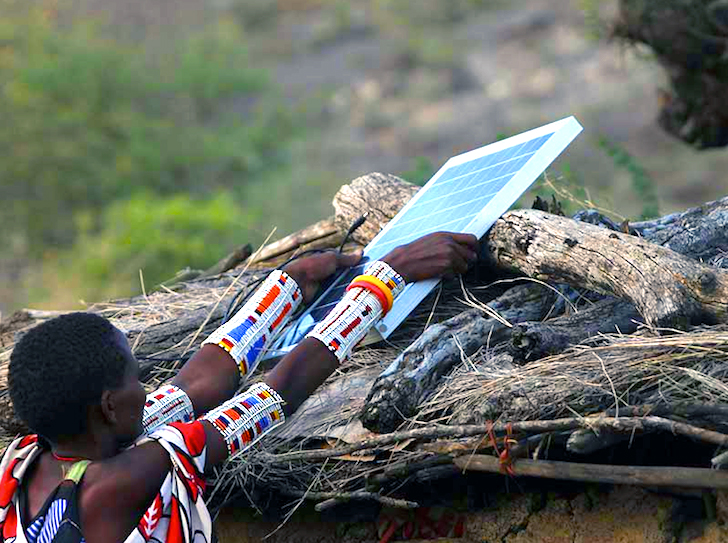The Maasai are a semi-nomadic pastoral tribe spread across Kenya and Tanzania, and globalization has not been kind to them. Vulnerable to wildlife that steal their livestock and powerless after the sun goes down, many Maasai often have to walk many kilometers just to charge their phones. But a new project spearheaded by Green Energy Africa has brought solar energy to 2,000 homes in Naiputa county alone, and put new power into the hands of women who sell affordable solar installations.
Green Energy Africa started the 7-month Women Entrepreneurship in Renewable Energy Project (WEREP) in September 2014 with a goal “promote inclusive participation of women and youth in development through solar energy” while bringing much needed energy to people living in Kenya’s Kajiado and Makueni counties.
The group reports only 23 percent of Kenyans have access to the national electricity grid, while only 5 percent of rural communities are connected. To make up for this energy shortfall, people like Jackline Naiputa, who was featured in a Reuters story about the program, have to rely on expensive kerosene or cut down trees for fuel.
Naiputa heads the Osopuko-Edonyinap group, one of the five women’s groups who purchase solar installations from Green Energy Africa at a discount and then transport them by donkey across villages and sell them for a 300 Kenyan Shillings or $3 profit. The proceeds are then stored in a fund which is used to purchase more solar panels, batteries and lights.
“For us, the impact of solar technology is unparalleled,” Naiputa told Reuters. She also explained that new solar lights protect her family against hyenas and wild cats that claimed 10 of their precious goats in 2014. Her son, who was forced to sleep out in the kraal to protect their livestock, is now able to sleep soundly inside since the family’s new solar lanterns keep the wildlife at bay.
Energy expert Lamarck Oyath, who is the managing director of Lartech Africa Limited, explained to the charitable arm of Thomson Reuters that Kenya has great untapped solar potential. But that’s not the only reason she lauds this project funded by ACT Kenya.
“Our community customs do not allow women to own any property,” she said. “But now women here own the solar technology, and it is something we are very happy about.”

